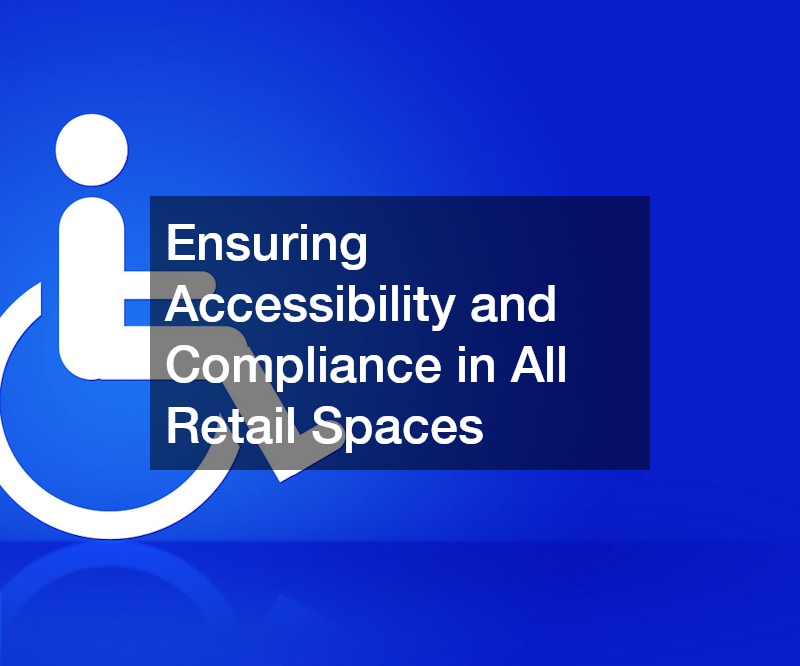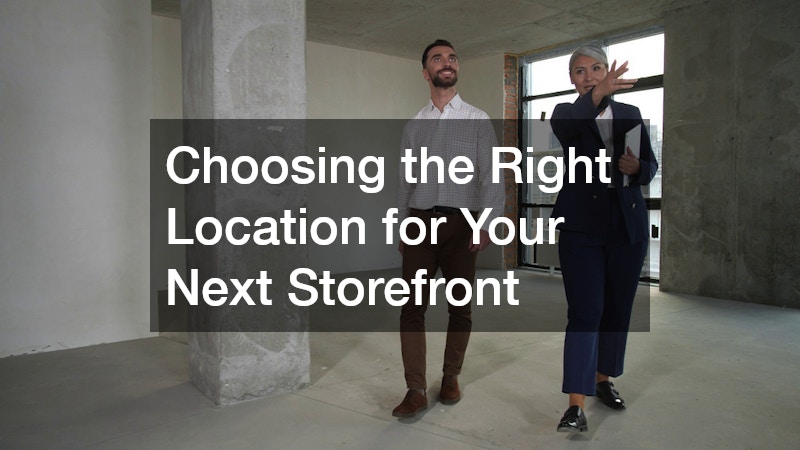
Scaling a retail business is one of the most challenging yet rewarding steps in an entrepreneur’s journey. Growth requires more than just increasing sales—it demands a well-rounded strategy that improves operations, enhances customer experience, and strengthens your brand’s market position. Understanding how to scale a retail business means knowing when to invest, how to optimize internal systems, and how to adapt to a rapidly changing consumer landscape. With careful planning and smart decision-making, retail owners can transform a single location or online store into a thriving, multi-channel enterprise.
True scalability begins with building a strong foundation. That foundation involves everything from financial readiness to operational efficiency and leadership vision. Without clear direction, growth can lead to unnecessary strain on resources and staff. By identifying opportunities, setting measurable goals, and leveraging technology, you can expand sustainably while maintaining quality and customer satisfaction. Scaling successfully is about more than just doing more—it’s about doing better, and this guide outlines the essential strategies to help you get there.
Defining a Clear Growth Strategy for Your Retail Brand
Before expanding your business, it’s essential to have a clear and actionable growth strategy. Many retail owners try to grow too quickly without understanding the market or preparing for the challenges that come with scaling. A successful plan starts with defining your core strengths, target audience, and long-term objectives. You should also consider factors like market trends, pricing models, and competition. Setting realistic goals helps you prioritize investments and ensures every step aligns with your overall mission. Developing a detailed strategy keeps your business focused, even as it evolves and grows.
Funding is another critical part of growth, especially when you’re learning how to scale a retail business. Exploring angel investment opportunities can provide the financial support needed to expand inventory, open new locations, or enhance e-commerce capabilities. Investors not only bring capital but can also offer valuable mentorship and industry connections. By securing the right funding early, you can focus on implementing your strategy effectively instead of worrying about financial constraints. A clear plan combined with smart financing creates a strong launchpad for long-term scalability.
Developing the Mindset and Skills of a Successful Leader
Scaling a business requires more than financial investment—it demands strong leadership and adaptability. As your company grows, your role will evolve from managing daily operations to overseeing strategic direction. This shift requires a growth-oriented mindset, effective communication skills, and the ability to delegate responsibilities to trusted team members. Leaders who can inspire, innovate, and adapt to change are better equipped to handle the complexities of expansion. Building a culture that values teamwork, accountability, and continuous improvement will help your business thrive through every phase of growth.
Every entrepreneur faces unique challenges on the path to scaling, from managing stress to learning how to lead larger teams. The key is to approach these challenges as learning opportunities rather than obstacles. Investing time in leadership training, networking, and mentorship can strengthen your decision-making and confidence. Understanding how to scale a retail business is about more than systems and sales—it’s also about personal growth as a business owner. When you develop the mindset of a successful entrepreneur, you set the tone for a company that’s resilient, forward-thinking, and prepared for sustained success.
Strengthening Your Digital and Communication Infrastructure
As your retail business expands, the need for strong and reliable digital infrastructure becomes even more critical. Communication systems, point-of-sale networks, and e-commerce platforms must be fast, secure, and scalable. A growing company can’t afford delays caused by outdated systems or poor connectivity. Strengthening your digital foundation not only supports internal operations but also enhances the customer experience by enabling faster transactions, smoother online navigation, and real-time communication. Investing in modern technology is one of the most essential steps when learning how to scale a retail business successfully.
Partnering with wireless infrastructure companies can help ensure your business is equipped with the right networking capabilities. These professionals design systems that support high-speed internet, secure data transfer, and reliable communication across multiple locations. Whether you’re managing inventory across several stores or maintaining a seamless omnichannel shopping experience, a strong wireless network is the backbone of your operations. Reliable connectivity helps you avoid downtime, keep employees efficient, and maintain customer satisfaction as your retail footprint grows.
Streamlining Logistics and Supply Chain Operations
As demand increases, managing logistics becomes more complex and requires greater attention to detail. Efficient supply chain operations are vital for delivering products on time, maintaining inventory levels, and controlling costs. Implementing automated systems for tracking, ordering, and fulfillment can help reduce errors and improve responsiveness. When considering how to scale a retail business, focusing on logistics ensures that growth doesn’t compromise quality or customer satisfaction. A well-structured supply chain can also help you adapt quickly to changing market demands or supply shortages.
Working with providers that offer flexible freight solutions can further optimize your logistics strategy. These services allow businesses to adjust shipping methods and timelines based on current needs, minimizing delays and reducing waste. Partnering with freight experts gives you the flexibility to handle fluctuations in order volume, seasonal demand, or expanding delivery territories. Streamlining logistics through reliable transportation and inventory management is a practical and powerful way to make scaling smooth and cost-effective.
Ensuring Accessibility and Compliance in All Retail Spaces
As your business grows and you open new locations, maintaining accessibility and regulatory compliance should always be a top priority. Retail spaces must not only be welcoming but also meet legal standards that protect both customers and employees. Creating inclusive environments that are accessible to everyone helps your brand earn trust and demonstrate social responsibility. Attention to accessibility isn’t just a legal obligation—it’s a reflection of your company’s values and commitment to serving all customers equally. When learning how to scale a retail business, this mindset helps build a positive reputation and fosters long-term loyalty.
Investing in ada compliant striping is one way to ensure your retail locations meet accessibility standards. Clearly marked parking areas, walkways, and loading zones make it easier for all customers to navigate your property safely. These small but important details improve overall convenience and reduce the risk of noncompliance fines. By integrating accessibility into every stage of your expansion plans, you create retail spaces that are both functional and inclusive—essential qualities for any brand focused on sustainable growth and community impact.
Expanding Distribution Through Reliable Partnerships
When your retail business begins to scale, distribution becomes one of the most critical factors in maintaining consistency and meeting customer demand. Expanding into new regions or markets requires a dependable system that ensures your products arrive on time and in perfect condition. Establishing strong partnerships with logistics providers and fulfillment centers can make this process much smoother. Reliable distribution channels help you maintain efficiency, reduce delivery times, and strengthen your reputation for reliability. Streamlined fulfillment is a core component of any plan focused on how to scale a retail business effectively.
Collaborating with companies that specialize in b2b fulfillment services can help simplify complex logistics as your customer base grows. These partners manage warehousing, packing, and shipping so that you can focus more on product development and marketing. They also have the expertise to handle bulk orders, subscription shipments, or wholesale contracts efficiently. By outsourcing distribution to trusted professionals, you can scale operations without overwhelming your in-house resources. Building strong fulfillment partnerships ensures that your expansion is both sustainable and profitable.
Choosing the Right Location for Your Next Storefront
Location is one of the most influential factors in retail success, especially as you begin to expand. The right site can attract new customers, increase visibility, and strengthen your brand’s presence in key markets. When deciding where to open a new location, consider factors such as foot traffic, nearby competitors, demographics, and accessibility. Understanding your audience and how they shop in different areas helps you make data-driven decisions that align with your growth strategy. Finding the perfect spot is a crucial step in mastering how to scale a retail business strategically.
Working closely with a real estate agent who understands commercial retail can make this process much easier. Experienced agents can help identify high-potential areas, negotiate favorable lease terms, and analyze long-term value. They can also provide insights into market trends and upcoming developments that may influence your store’s success. By leveraging professional real estate guidance, you can minimize risks and maximize return on investment when opening new locations. The right property isn’t just a store—it’s a cornerstone of your brand’s expansion.
Elevating Brand Visibility With Eye-Catching Storefront Displays
Your storefront serves as the face of your business, and it’s often the first impression potential customers will have of your brand. An engaging and visually appealing exterior can draw people in, communicate your brand’s identity, and increase overall traffic. As you expand into new markets, maintaining consistency in your branding and visual design helps create familiarity and trust. High-quality signage, window displays, and exterior aesthetics all contribute to a professional and recognizable image. Investing in visual appeal is one of the most effective ways to support long-term growth when learning how to scale a retail business.
Partnering with custom sign companies can help you design and produce unique storefront signage that captures your brand’s personality. These experts use durable materials, creative designs, and modern lighting techniques to make your storefront stand out in busy retail environments. Whether it’s a boutique store or a large retail chain, professional signage helps establish credibility and makes your business instantly recognizable. A cohesive and attractive storefront is not just decoration—it’s a key marketing tool that drives awareness and foot traffic in every new location.
Enhancing Marketing With Professional Print Materials
Even in an increasingly digital world, printed materials still play a crucial role in promoting retail businesses. From in-store signage to promotional flyers and packaging inserts, print marketing builds a tangible connection with customers and reinforces brand recognition. Professionally designed materials give your business a polished and consistent look that strengthens credibility and enhances customer experience. When done correctly, print assets complement your online marketing efforts, creating a cohesive brand presence across all channels. As you learn how to scale a retail business, blending physical and digital marketing ensures that your message reaches a broader audience.
Working with experts in business printing can help you produce high-quality materials that align with your brand’s identity. Whether you need customized brochures, branded receipts, or product labels, professional printers ensure consistency, durability, and visual appeal. They can also help streamline bulk printing orders for new store openings or large-scale marketing campaigns. By investing in expertly printed materials, your business presents a unified and professional image that builds trust and leaves a lasting impression on every customer.
Building Long-Term Brand Recognition Through Consistent Messaging
Sustaining growth in the retail industry depends heavily on brand consistency. Customers should be able to recognize your business instantly, whether they’re shopping in-store, online, or seeing an ad on social media. A clear and consistent message communicates professionalism, reliability, and quality. This consistency extends to everything from your logo and tone of voice to your visual design and customer interactions. Maintaining a unified brand identity across all platforms is one of the most important elements of how to scale a retail business effectively.
Partnering with a sign company that understands brand strategy can help you maintain uniformity as your business grows. These professionals ensure that all physical and digital signage aligns with your established style and messaging, creating cohesion across every location. Consistent signage reinforces familiarity and trust—two factors that keep customers loyal as you expand into new markets. When your brand message remains steady, your company feels reliable, recognizable, and credible no matter how large it grows.
Scaling a retail business successfully requires a combination of strategy, adaptability, and creativity. Growth doesn’t happen by chance—it’s built through smart planning, strong leadership, and efficient execution. From securing investments and expanding distribution to optimizing branding and infrastructure, every step should align with your long-term vision. Understanding how to scale a retail business means looking beyond short-term profits to build systems that can sustain growth, efficiency, and customer satisfaction for years to come.
Equally important is maintaining consistency in quality and brand identity as your company grows. Every new store, employee, and marketing effort should reflect the same dedication to excellence that made your business successful in the first place. By integrating scalable systems, leveraging professional partnerships, and focusing on both customer experience and operational performance, you’ll position your business for sustainable success.
Ultimately, scaling a retail business is about balance—balancing growth with stability, innovation with tradition, and expansion with consistency. When each element of your strategy works together seamlessly, your retail brand can grow confidently and continuously. With careful planning, the right partnerships, and a commitment to excellence, your business can thrive in a competitive marketplace and continue to build long-term success.







